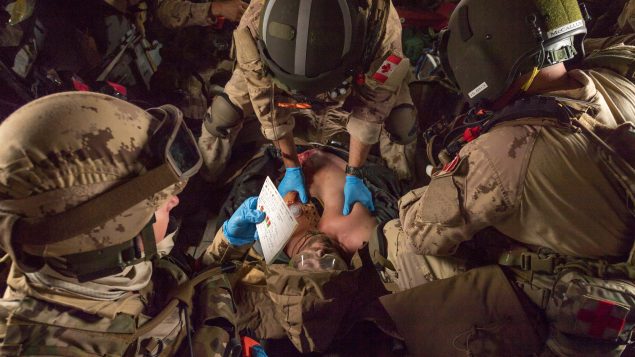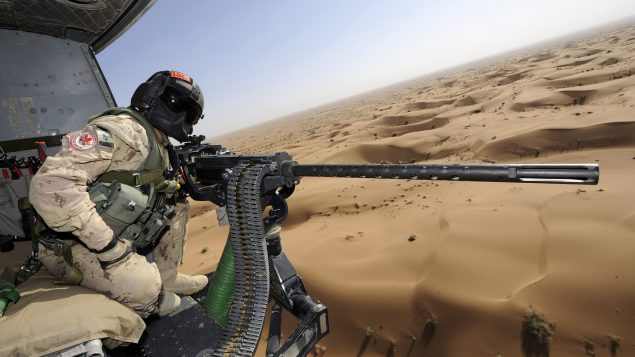
The Canadian peacekeeping contingent in Mali reached its first operational milestone Wednesday as a deadly attack on a convoy carrying election materials illustrated the kinds of situations Canadian air crews could be called upon to respond to as they begin their duties in the volatile West African nation.
Canada has deployed about 250 soldiers and eight helicopters to provide the United Nations Multidimensional Integrated Stabilization Mission in Mali (MINUSMA) with a 24/7 aeromedical evacuation capability, as well as tactical airlift.
As of Wednesday, Task Force Mali has reached its initial operational capability, which means it is now capable of conducting around the clock aeromedical operations when called upon by the MINUSMA commandment, said Capt. Christopher Daniel, a spokesperson for the Canadian Joint Operations Command.
“The various related projects were completed in time to permit Canada to declare to the UN that the Task Force are to begin ready to conduct 24/7 operations,” Daniel said.
Once the Canadian task force reaches full operational capability by mid-August, it will also provide tactical airlift or air mobility support for MINUSMA, such as hauling troops, equipment, supplies, and food within Mali, Daniel said.
An elusive peace

Members of the CH-147 Chinook medical team work on a simulated Dutch casualty during a medical evacuation exercise in support of Operation PRESENCE – Mali around Gao, Mali on July 31, 2018. (Master Cpl. Jennifer Kusche/Canadian Forces Combat Camera)
Canadian air crews were not involved in the response to Tuesday’s attack in the south-central region of Segou that killed four Malian soldiers and eight militants, Daniel said.
But the deadly ambush once again illustrated the dangers facing the UN mission as well as soldiers from five neighbouring sub-Saharan countries deployed to stabilize the war-torn country.
Mali’s presidential election, the second since Tuareg rebels and allied Islamists took over the north in 2012, prompting French forces to intervene the following year to push them back, has been beset by attacks at the hands of suspected Islamist militants and allied ethnic militia.
Armed attackers succeeded in shutting down 644 polling stations on Sunday, representing about 3 per cent of the total. A fifth of all polling stations suffered some kind of disruption, figures from the Ministry of Territorial Administration showed.
Jihadists have rendered almost all of north and central Mali unsafe by continually targeting foreign and local interests, taking hostages and attacking security and peacekeeping forces.
Training for the real deal

Canadian Forces Door Gunner, Sgt. Chad Zopf, leans out of the CH-146 Griffon helicopter to obtain positive identification on a target and engage it using his GAU-21 50-caliber machine gun during a training exercise. (Sgt. Matthew McGregor/CAF)
The Canadian task force includes three medium lift CH-147F Chinook helicopters and five CH-146 Griffon helicopters. The Griffons, armed with side-mounted machine guns, will be providing security to the Chinooks that are equipped to provide care for up to two critically injured patients as well as several walking wounded.
The Canadians will be flying in teams of three aircraft: two Griffon armed escorts and a Chinook medical transport to pick up the wounded.
“Although they have not been tasked yet by MINUSMA to respond to real life situations, our Task Force Mali personnel have been exercising realistic training scenarios to further increase their readiness to conduct aeromedical missions,” Daniel said.
Before Canadians reach full operational capability, the UN has contracted a civilian company to fill in the gap, Myriam Dessables, the spokesperson for MINUSMA, told Radio Canada International.
With files from Reuters


